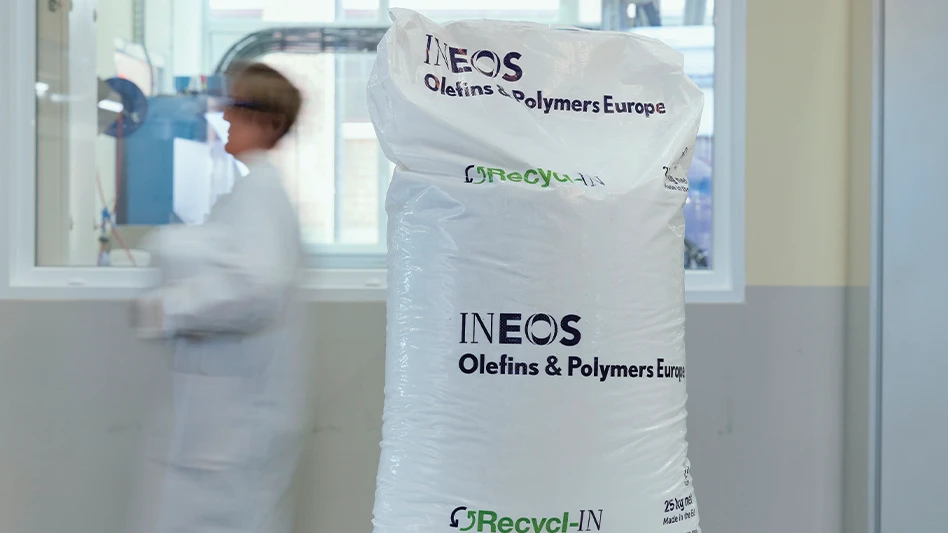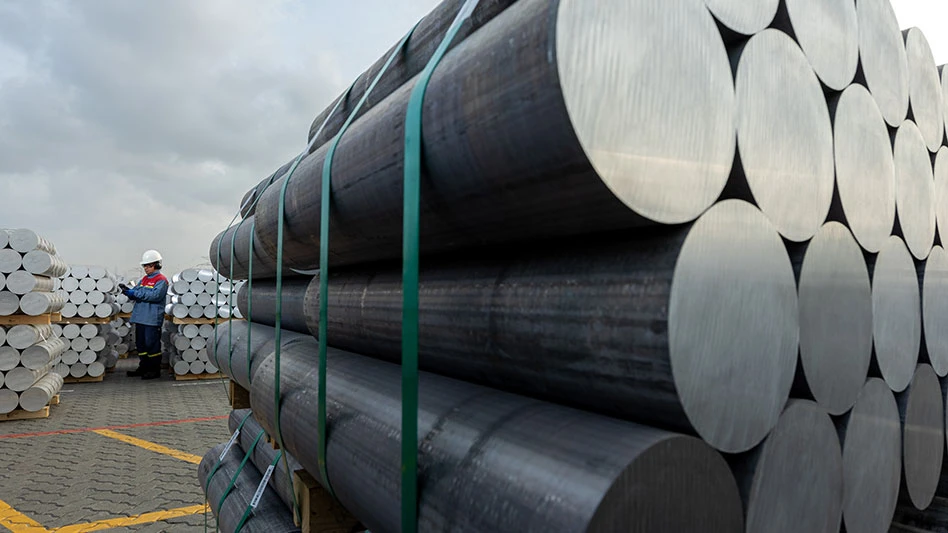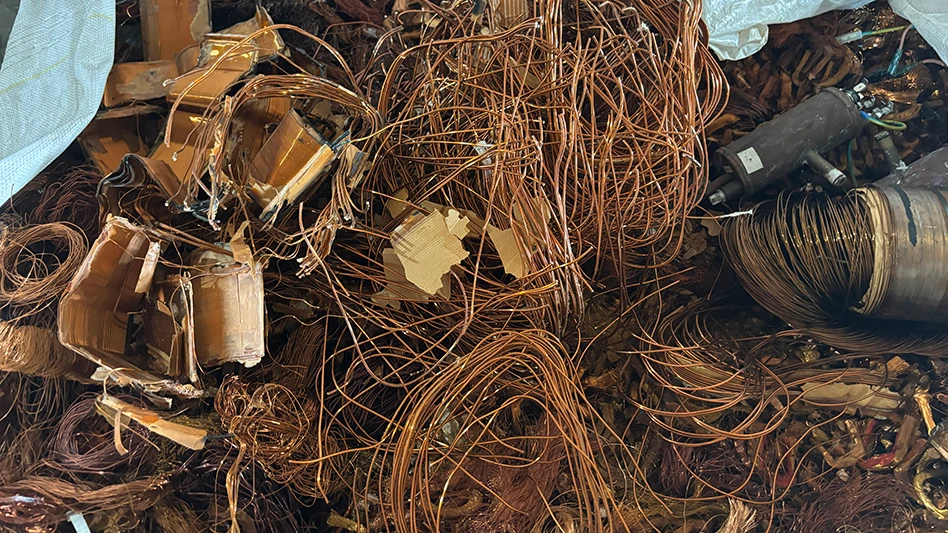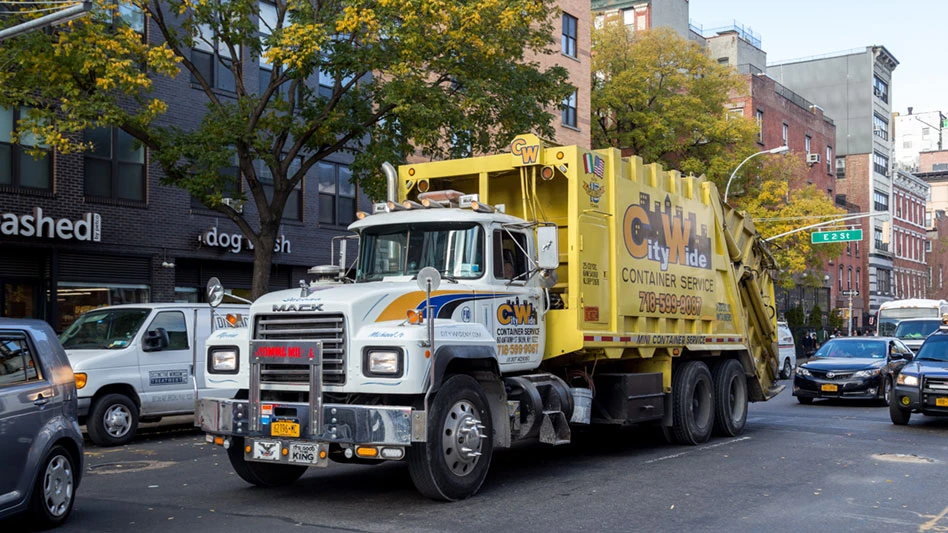Schnitzer May Soon Acquire Proler Despite Complaints from Hugo Neu
Ever since the merger agreement between Proler International, Houston, and Schnitzer Steel Industries, Portland, Ore., was announced on September 15, Hugo Neu Corp., New York, has been on a rampage to stop the wedding. And Hugo Neu has good reason – the majority of Proler’s assets are tied to joint ventures with Hugo Neu, and the two firms have a relationship that goes back 30 years.
"Allowing Schnitzer to acquire Proler and become Hugo Neu’s partner ultimately will be unsatisfactory to Schnitzer, Hugo Neu and joint ventures," according to a statement released by Hugo Neu. "Schnitzer’s management style is inconsistent with that of the Hugo Neu organization and will inevitably put the parties on a collision course."
Hugo Neu had a temporary restraining order issued against Proler preventing it from disclosing to Schnitzer confidential business information relating to Hugo Neu’s three scrap metal joint ventures with Proler. The company also issued an emergency request for a court hearing in Texas to block the acquisition.
Schnitzer’s first offer was $7.50 a share, which officials at Proler accepted. Then Hugo Neu made a counter offer of $8.25 a share. Proler officials did not like the offer because of the financing arrangements, but then Hugo Neu restructured the offer and raised it to $9 a share. Immediately afterwards, Schnitzer matched this at $9 a share on Nov. 15. Hugo Neu withdrew its emergency request for court relief as Proler shareholders were given, by law, 10 days to reevaluate the new offers.
During that time, Hugo Neu did not make a counter offer, and a spokesperson for Proler says that it looks like everything is heading toward a consummation with Schnitzer. Although Proler and Schnitzer have a definitive merger agreement, officials at Hugo Neu were still hoping the merger would not receive antitrust clearance from the U.S. Department of Justice. But on November 25, Schnitzer and Proler received notice that the waiting period under the Hart-Scott Rodino Antitrust Improvements Act of 1976 was terminated, clearing the way for the merger.
PRANA CUTS STAFF, RESTRUCTURES
Pallet Recycling Associates of North America, Roseville, Minn., has just finished about $800,000 in cuts and other cost-saving measures in order to address a lack of short-term working capital. Among other items, the savings will be used to make payments on notes that will soon be due.
"It was necessary to make some severe cuts at corporate," says Jeff Otto, chief executive officer of the company in a recent corporate newsletter. "We had built up a valuable, talented team of people who were ready to serve a company that we had anticipated being significantly larger at this time."
Currently, PRANA only has 15 member companies with 23 locations. Otto had hoped to have twice as many locations.
In addition, the company has put off making an initial public offering of stock, but expects to make that offering this spring.
"The market went soft on us," says Otto, "and we had to slow down. But we are still receiving two to three inquires per week from companies wanting to join our organization."
Ferrous Prices Remain Weak
Ferrous scrap prices keep trending downward as the end of the year approaches. Already prices are depressed about $20 to $30 a ton, and many dealers expect the slide to continue by several more dollars before the new year begins. Most people in the scrap business point to the failure of new capacity to come on line as scheduled, and the traditional draw down of inventory at the mills during this time of the year. Falling export orders are also adding to the glut. In addition, there seems to be plenty of scrap at the yards, probably due to dealers holding scrap until the market picks back up.
"Several factors have contributed to the situation," says one major ferrous processor in the Midwest. "First, many of the anticipated mill start-ups did not happen, and buying from Canada dropped significantly. Also, exports overseas basically died. I don’t think that yards are hoarding scrap now waiting for an upturn, but the flow of scrap sure has slowed a bit."

Explore the December 1996 Issue
Check out more from this issue and find your next story to read.
Latest from Recycling Today
- SHFE trading expansion focuses on nickel
- Maverick Environmental Equipment opens Detroit area location
- International Paper completes sale of global cellulose fibers business
- Building a bridge to circularity
- Alton Steel to cease operations
- Nucor finishes 2025 with 14 percent earnings decline
- Algoma to supply Korean shipbuilder
- Improving fleet maintenance management across multiple locations





